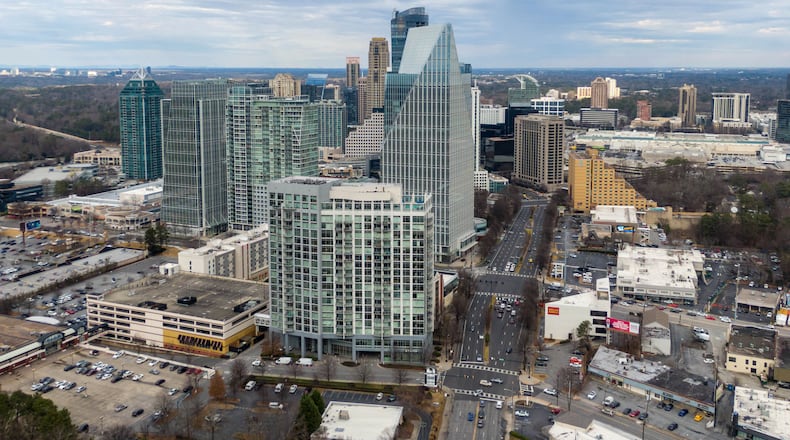The effort by some to separate from the city of Atlanta to create a new Buckhead City is an overly divisive and damaging way to address legitimate community concerns, likely to leave bigger problems in its wake.
Now, the complaints voiced by those pursuing cityhood are shared by many, including me. Violent crime is a crisis in Buckhead and is impacting residents and businesses alike. City services, such as reliable trash pick-up and maintenance of streets and sidewalks, has deteriorated markedly during the pandemic. And zoning proposals that may harm neighborhoods have recently been put forward.
These issues must be addressed. However, the best way to do so is participating vigorously in upcoming elections and electing those candidates who put forward actionable plans and demonstrate the leadership and will to implement them. Collaboration among Buckhead’s many neighborhood and business organizations can also help a lot. A good recent example is the Buckhead Security Plan, developed with input and support from organizations across Buckhead, as well as APD and the Atlanta Police Foundation.
Credit: contributed
Credit: contributed
The group pushing cityhood believes that Buckhead should go it alone and is working to convince the Georgia Legislature and residents of Buckhead that this is the solution.
However, the process to create a new city is complex, with legal, legislative, and political entanglements along the way.
A brief overview of the process includes:
- A local group decides it wants to incorporate. (This has happened.)
- A bill, sponsored by a member of the State Legislature, is introduced. (A placeholder bill was introduced in the final hours of the last day of the 2021 legislative session.)
- A feasibility study must be done to determine whether the new city would be viable.
- Two different bills would need to be considered by the General Assembly. The first is a “local bill” requiring support from a majority of the House and Senate local delegations. The second is a city creation bill similar to that introduced at the end of the last session.
- If the House and Senate pass the two bills, they go to the governor’s desk for signature. (This could happen in the 2022 legislative session.)
- If the governor signs it, a referendum is placed on the ballot, allowing only voters in the affected area of Buckhead to choose whether they would like their community to form a new city. It is approved with a simple majority. Residents in other parts of the city of Atlanta, who would no doubt be affected, would not get to participate in that vote. (This could take place as early as November of 2022.)
For the legislature and the public to properly debate this proposal, a number of crucial issues, impacting hundreds of thousands of people, must be thoroughly examined.
Public finances and Taxes
The impact on the City of Atlanta’s finances would be devastating, including on its ability to satisfy nearly $3 billion of existing liabilities and unfunded pension obligations. The loss of the city’s excellent bond rating would impair its ability to fund infrastructure and city services in the future.
As The Atlanta Journal-Constitution reported last week, the city gets most of its revenue from property taxes paid by homeowners and commercial property owners. About 45% of that comes from Buckhead. Removing that tax base cannot be accomplished without long-lasting, damaging impact to Georgia’s capital city.
Business reputation
Even talk of Buckhead separating itself from Atlanta is costly to Atlanta’s business reputation. CEOs and business leaders are strongly opposed to cityhood efforts, not just because there is little chance of success, but also because the divisions stoked by the process could be harmful. Companies and entrepreneurs value stability when investing in or relocating to a community. Talk of cleaving the city in two, and its monumental repercussions, will likely cause hesitation for future local investment.
Division and race
I don’t believe race is motivating the movement to create a new Buckhead City. But given that the Buckhead community is overwhelmingly white and wealthy, the racial implications will be obvious, especially at this moment for our country. Drawing on Atlanta’s rich history of the civil rights movement, we are clearly best when we come together during times of challenge, not when we separate.
The Buckhead Coalition opposes the creation of a new Buckhead City. Now, as much as at any time in our history, Atlantans need to come together across racial, geographic, and economic differences to find common ground and build a more-unified community.
We are committed to working with city government to ensure that our businesses and residents are supported with necessary municipal services. United, we can build a more-cohesive, equitable, safe, and prosperous city for all.
Jim Durrett is president and CEO of The Buckhead Coalition.
About the Author
Keep Reading
The Latest
Featured




